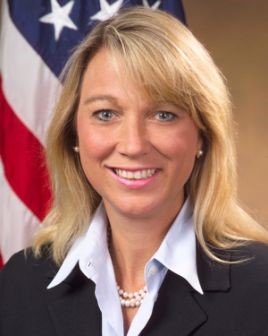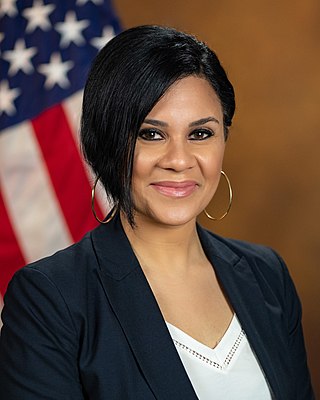Related Research Articles

The term "white-collar crime" refers to financially motivated, nonviolent or non-directly violent crime committed by individuals, businesses and government professionals. The crimes are believed to be committed by middle- or upper-class individuals for financial gains. It was first defined by the sociologist Edwin Sutherland in 1939 as "a crime committed by a person of respectability and high social status in the course of their occupation". Typical white-collar crimes could include wage theft, fraud, bribery, Ponzi schemes, insider trading, labor racketeering, embezzlement, cybercrime, copyright infringement, money laundering, identity theft, and forgery. White-collar crime overlaps with corporate crime.
The Senate Judiciary Subcommittee on Criminal Justice and Counterterrorism is one of six subcommittees within the Senate Judiciary Committee. It was previously known as the Subcommittee on Crime and Terrorism

The judicial system of Turkey is defined by Articles 138 to 160 of the Constitution of Turkey.
In criminal law, strict liability is liability for which mens rea does not have to be proven in relation to one or more elements comprising the actus reus although intention, recklessness or knowledge may be required in relation to other elements of the offense. The liability is said to be strict because defendants could be convicted even though they were genuinely ignorant of one or more factors that made their acts or omissions criminal. The defendants may therefore not be culpable in any real way, i.e. there is not even criminal negligence, the least blameworthy level of mens rea.

Alice Stevens Fisher is an American lawyer and partner at the Washington, D.C. office of Latham & Watkins LLP. Fisher served as Deputy United States Assistant Attorney General for the Criminal Division from 2001 to 2003 and as an Assistant Attorney General in the Department of Justice Criminal Division for three years, from 2005 to May 23, 2008.
The National Association of Criminal Defense Lawyers (NACDL) is an American criminal defense organization.
The Model Penal Code (MPC) is a model act designed to stimulate and assist U.S. state legislatures to update and standardize the penal law of the United States. The MPC was a project of the American Law Institute (ALI), and was published in 1962 after a ten-year drafting period. The chief reporter on the project was Herbert Wechsler, and contributors included Sanford Kadish and numerous other noted criminal law scholars, prosecutors, and defense lawyers.

Jeralyn Elise Merritt is an American criminal defense attorney in private practice in Denver, Colorado, since 1974. She served as one of the trial lawyers for Timothy McVeigh in the Oklahoma City bombing case in 1996 and 1997. In 2002 Merritt founded and is the principal author of the blog TalkLeft: The Politics of Crime. She also serves as a legal commentator for news media programs and as an internet journalist.
The Subcommittee on Crime and Federal Government Surveillance is a subcommittee within the House Judiciary Committee. It was previously known as the Subcommittee on Crime, Terrorism and Homeland Security.

A death threat is a threat, often made anonymously, by one person or a group of people to kill another person or group of people. These threats are often designed to intimidate victims in order to manipulate their behaviour, in which case a death threat could be a form of coercion. For example, a death threat could be used to dissuade a public figure from pursuing a criminal investigation or an advocacy campaign.

Joe Dally Whitley is an American lawyer from Georgia who was the first General Counsel for the United States Department of Homeland Security. He works in private practice at Womble Bond Dickinson (US) LLP and has been named a Super Lawyer, listed in The Best Lawyers in America®, named a ‘’2019 Lawyer of the Year’’, is AV® Preeminent™ Peer Review Rated by Martindale-Hubbell, and listed in Chambers USA: America's Leading Business Lawyers.

Paul David Borman is a senior United States district judge of the United States District Court for the Eastern District of Michigan, having been appointed in 1994. Borman was earlier an assistant United States attorney, and Special Counsel to the Mayor of Detroit. For 15 years thereafter, he was chief federal defender of the Legal Aid & Defender Association of Detroit from 1979 to 1994. When he was appointed to be a federal judge, he became the first federal defender to be appointed to the federal bench. He was also a Professor and Assistant Dean at Wayne State University Law School, and an Adjunct Lecturer at the University of Michigan Law School.

Virginia Mary Kendall is an American attorney and jurist serving as a United States district judge of the United States District Court for the Northern District of Illinois. President George W. Bush appointed her to the bench on January 3, 2006. In addition to serving on the bench, Judge Kendall is also a noted expert on child exploitation and human trafficking, as well as an adjunct professor and author.
Life imprisonment in Turkey is a legal form of punishment and the most severe form of punishment. In most cases life imprisonment replaced capital punishment. Law 4771 of 3 August 2002 abolished the death penalty for peace time and replaced capital punishment with life imprisonment for 17 provisions of the Turkish Penal Code. Law 5218 of 14 July 2004 abolished the death penalty completely. This law provided that in some 40 provisions of the Turkish Penal Code and other laws such as the Law on Forests the death penalty was replaced by aggravated life imprisonment.
Capital punishment in Montenegro was first prescribed by law in 1798. It was abolished on 19 June 2002. The last execution, by shooting, took place on 29 January 1981, and the two last death sentences were pronounced on 11 October 2001. Montenegro is bound by the following international conventions prohibiting capital punishment : Second Optional Protocol to the International Covenant on Civil and Political Rights, as well as Protocols No. 6 and No. 13 to the European Convention on Human Rights. Article 26 of the Montenegrin Constitution (2007) that outlawed the death penalty states: "In Montenegro, capital punishment punishment is forbidden”.
The Texas Penal Code is the principal criminal code of the U.S. state of Texas. It was originally enacted in 1856 and underwent substantial revision in 1973, with the passage of the Revised Penal Code, in large part based on the American Law Institute's Model Penal Code.

Rachel Rossi is an American lawyer and public official. She is the Director of the Office for Access to Justice at the United States Department of Justice. Rossi has worked as a public defender in Los Angeles County, and as criminal justice counsel to Democratic Senator Dick Durbin and for the United States House Committee on the Judiciary, Subcommittee on Crime, Terrorism and Homeland Security. Rossi was the first former public defender to run for the nonpartisan seat of Los Angeles District Attorney.
Murder in North Dakota law constitutes the intentional killing, under circumstances defined by law, of people within or under the jurisdiction of the U.S. state of North Dakota.

The Islamic Republic of Iran was founded after the 1979 overthrow of the Pahlavi dynasty by the Islamic Revolution, and its legal code is based on Islamic law or sharia, although many aspects of civil law have been retained, and it is integrated into a civil law legal system. According to the constitution of the Islamic Republic, the judiciary in Iran "is an independent power". The entire legal system—"from the Supreme Court to regional courts, all the way down to local and revolutionary courts"—is under the purview of the Ministry of Justice, but in addition to a Minister of Justice and head of the Supreme Court, there is also a separate appointed Head of the Judiciary. Parliamentary bills pertaining to the constitution are vetted by the Council of Guardians.

The Constitutio Criminalis Theresiana was a penal code issued in 1768 by the Austrian ruler Maria Theresa. The penal code established a unified criminal law and criminal procedure law in the Habsburg-ruled countries of Austria and Bohemia. In Hungary, Belgium and Lombardy, however, the law did not apply.
References
- ↑ "Ellen S. Podgor - Profile | Stetson Law". www.law.stetson.edu. Archived from the original on 2011-09-03.
- ↑ "White Collar Crime Prof Blog".
- ↑ "Habeas Corpus, writs written [w]orsen; taking wrong turn on basic rights" . Retrieved January 10, 2012.
- ↑ Mitchell, Dan (September 24, 2005). "Doing Executive Time". The New York Times. Retrieved January 10, 2012.
- ↑ Stelter, Brian (July 13, 2011). "News Corp. Newspapers May Face U.S. Inquiry". The New York Times. Retrieved January 10, 2012.
- ↑ "House Committee on the Judiciary Subcommittee on Crime, Terrorism, and Homeland Security" (PDF). Archived from the original (PDF) on February 3, 2012. Retrieved January 6, 2012.
- ↑ "Throwing Away the Key" . Retrieved January 10, 2012.
- ↑ "Judge Paul D. Borman". United States District Court -- Eastern Michigan District.
- ↑ "Draft Model Penal Code" (PDF). Archived from the original (PDF) on December 12, 2010. Retrieved January 10, 2012.
- ↑ "No more Model Code on capital punishment" . Retrieved January 10, 2012.
- ↑ "NACDL - White Collar College". www.nacdl.org. Archived from the original on 2011-10-03.
- ↑ "Professor Ellen S. Podgor Receives Criminal Defense Bar's Top Honor" . Retrieved January 10, 2012.